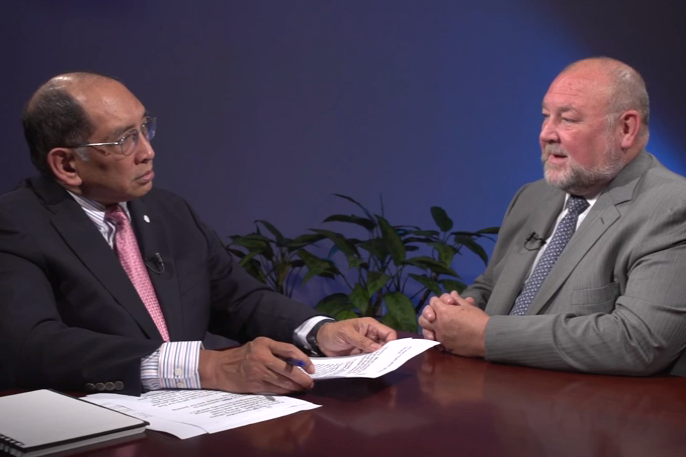AFCEA Leadership Series: Leaders Are the Sum of Their Life's Work
Adversity can create heroes and leaders alike.
Sometimes, it's the worst that life has to offer that brings out the best in people, says Adm. Thad Allen, USCG (Ret.), and an executive vice president with Booz Allen Hamilton.
As the U.S. Coast Guard's 23rd commandant, he served as a front-line witness to stressors that can make or break a leader.
"I think when we have large search and rescue cases that don’t come out as planned … when somebody is hurt or injured or killed, I think those are extraordinarily difficult situations; the most difficult that I’ve encountered," Allen says, his voice steady, during a recent episode of AFCEA's Leadership Series: Five Questions, produced in conjunction with the AFCEA Educational Foundation’s Leadership Forum.
“And what you really need to do is understand what’s really going on in those situations and try to understand what’s driving human behavior,” he continues. “You need to understand your own emotions, and I think those are some of the most powerful learning situations you can be in.”
In 2010, Allen served as the national incident commander for the Deepwater Horizon oil spill in the Gulf of Mexico, working for a unified federal response to the disaster.
Leaders are not defined by a single characteristic, but a string of accumulated life lessons that make a whole.
What is a leader’s most important skill? “I firmly believe it’s the intellectual content of what they’ve done throughout their lives and their experiences and their ability to understand complex situations, to create mental models for action and translate those models to their subordinates,” Allen answers. “I don’t think there’s any second.”
During his Five Questions interview with Max Cacas, producer/host of AFCEA Answers Radio, Allen addresses issues from the importance of working as teams to paying kudos to junior personnel and employing people who are not afraid to “speak truth to power.”
“I think we need to understand that in the complex world we live in today, there is no one single person or organization or entity that can solve a problem by themselves.”





Comments